
by Anthony Imbrogno, a volunteer with The Calgary Heritage Initiative Society/Heritage Inspires YYC
Canada and Ireland share a special bond. On the boardwalk along the River Liffey in Dublin stands the Great Famine Memorial – six persons dressed in rags clutching their belongings and children. In Toronto’s Ireland Park, similar sculptures recall the arrival of impoverished immigrants to their new lives.
In Calgary, some Irish immigrants were wealthy and sought new opportunities in the rapidly developing West. The results are seen in notable buildings around the city.
Patrick Burns, the son of Irish immigrants to Ontario after the Great Famine, became one of the “Big Four” ranchers who founded the Calgary Stampede in 1912. He arrived in Calgary in 1890, established a slaughterhouse, and grew his interests to include ranching, retail, and real estate.
In 1873, John Glenn from County Mayo homesteaded where Fish Creek joins the Bow River. In 1883, the Hull family purchased the land, established Bow Valley Ranche and expanded their business provisioning for the Canadian Pacific Railway. They constructed a Tudor Revival-style brick home by 1896, which Burns bought in 1902. In 1975, the province purchased the area and established Fish Creek Provincial Park. The Ranche was restored by Calgarians in 1999 and continues today as a place for fine dining and Western hospitality.
In 1912, the Burns Building was completed on Stephen Avenue. It’s built in the Chicago style, with steel-reinforced concrete and wrought iron, and has Edwardian Classical flourishes, including lion’s heads, ornamental mouldings, and green and white Italian marble. It housed the headquarters and flagship market for Burns (today’s Maple Leaf) Foods.
Another building is Elveden Centre, a three-tower office building and one of Calgary’s early skyscrapers. It was built in phases between 1959 and 1964 by British Pacific, a Guinness family company seeking investments in Calgary’s expanding oilpatch. It’s built in the International style, which emphasizes functionality, uses lightweight materials, has flat surfaces typically with glass, and no ornamentation. The first two towers, Elveden and Iveagh, are named after the Guinness estate in Suffolk, England. The third is Guinness House.
From poverty to prosperity, Irish entrepreneurship, tenacity and hope helped build our great city.
*All copyright images cannot be shared without prior permission.
Historic Photos
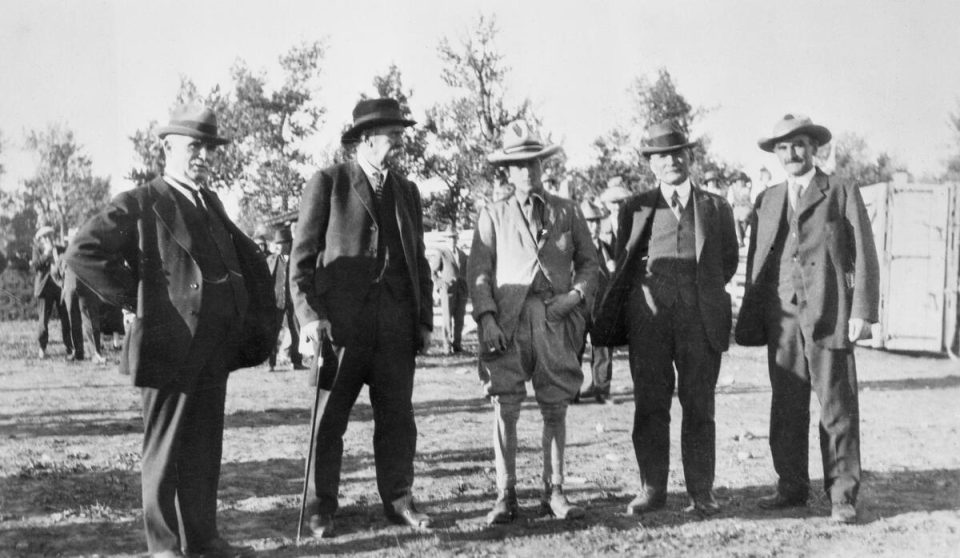
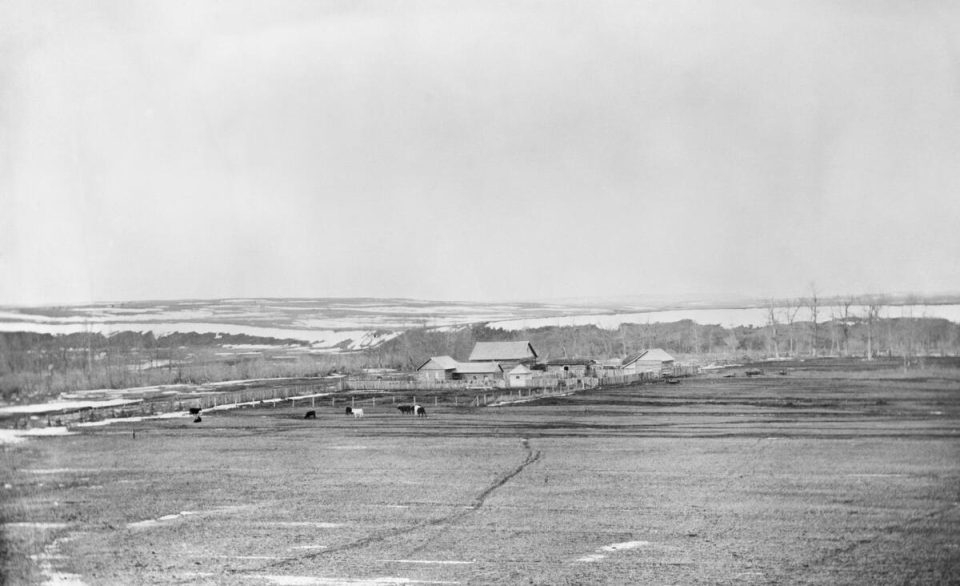
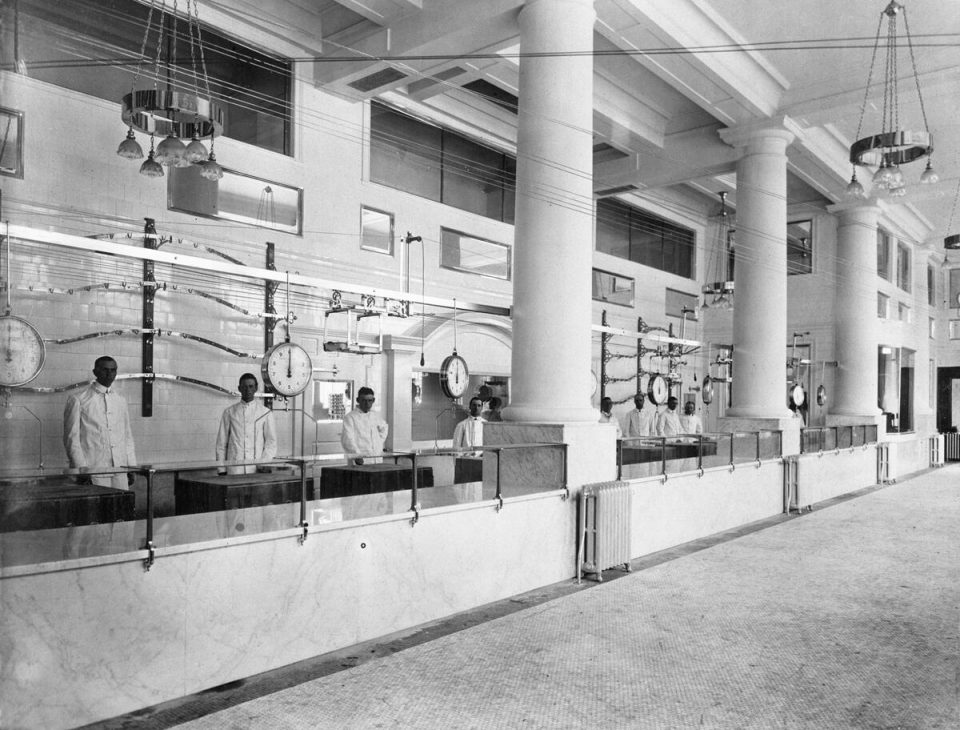
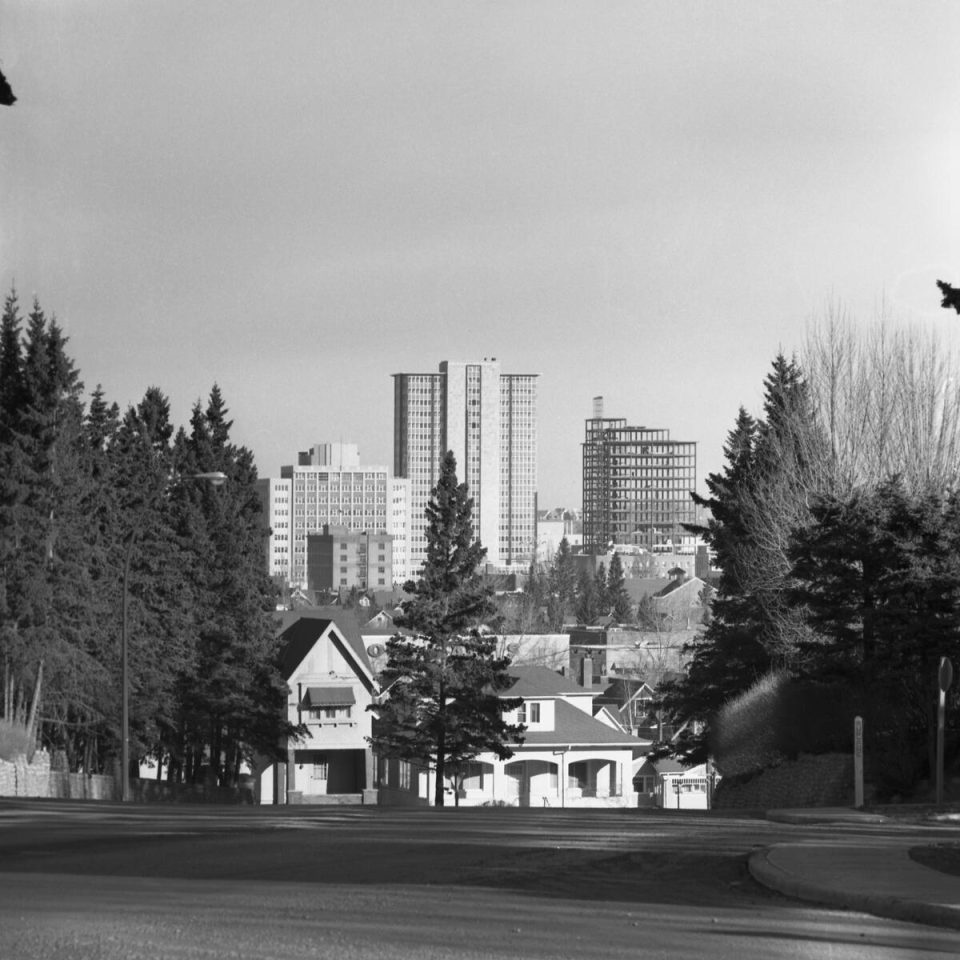
Modern Photos
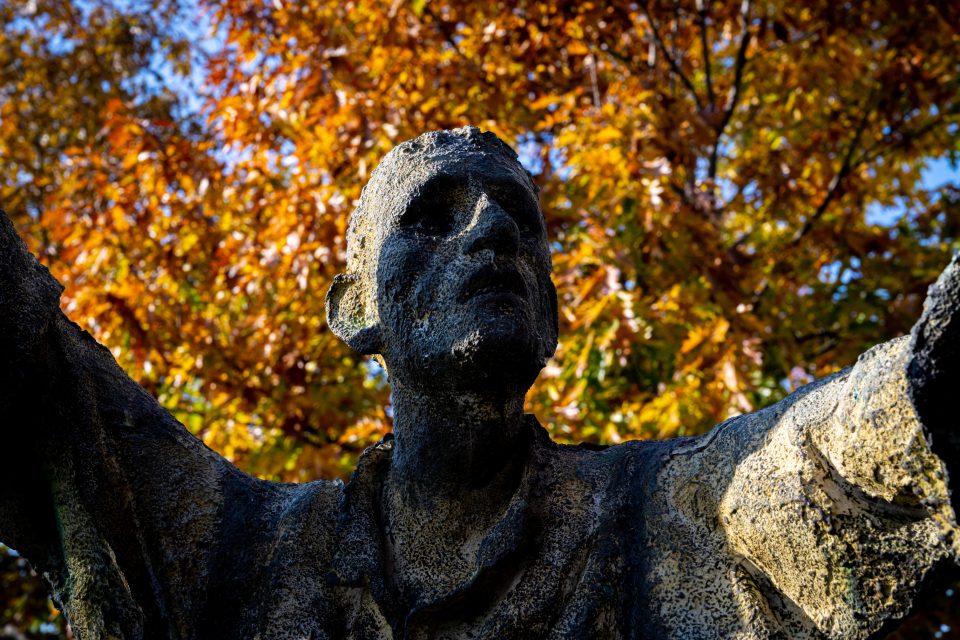
https://www.dreamstime.com/bronze-statue-irish-immigrant-toronto-s-irish-park-bronze-statue-irish-immigrant-toronto-s-irish-park-arms-image261896856. Bronze statue of Irish immigrant in Toronto’s Ireland Park with arms extended to the sky for salvation, no date. ID 261896856 © Jeff Westhead | Dreamstime.com. Editorial license paid.
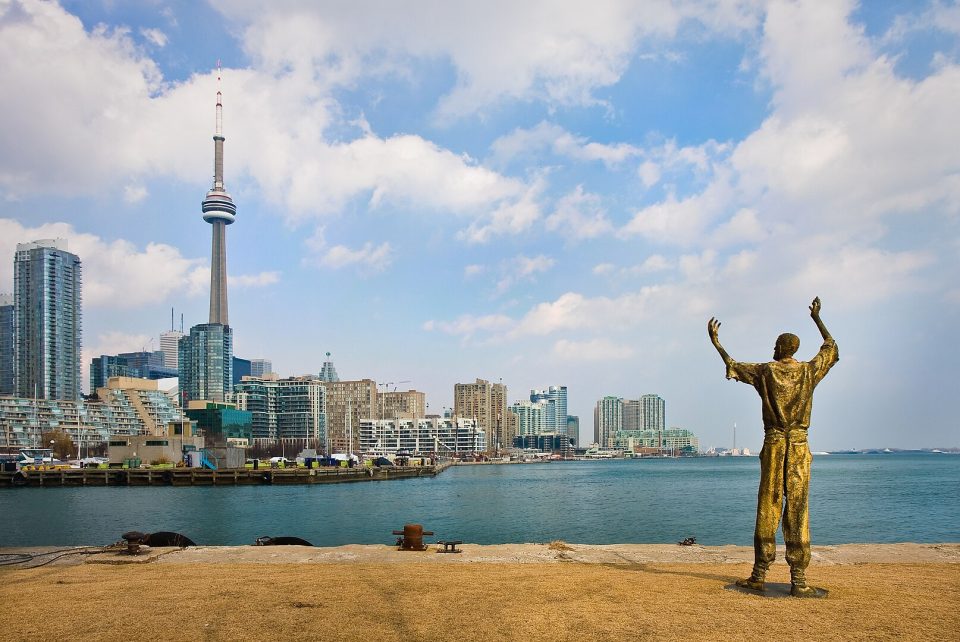
https://commons.wikimedia.org/wiki/File:The_Jubilant_Man_(3372089964).jpg. Benson Kua, “The Jubilant Man” statue at Ireland Park, Toronto, 2009 (This image licensed under the Creative Commons Attribution-Share Alike 2.0 Generic license).









